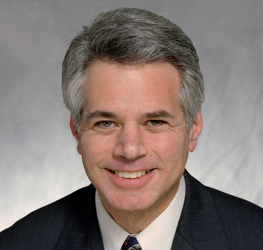Exclusive Contracts Between Physicians and Hospitals Raise Stark Law Concerns
For years, the Stark Law has been a sleeping giant for the health care industry, but it has awakened. Not only have there been a number of seven-and eight-figure settlements involving alleged Stark Law violations, but a recent U.S. Court of Appeals for the Third Circuit decision has raised the stakes for hospitals.
In U.S. ex rel. Kosenske v. Carlisle HMA, Inc., the Court found that an exclusive contract between an anesthesia group practice and a local hospital raised a potential violation of the Stark Law. The lawsuit was brought by a qui tam plaintiff under the federal False Claims Act, on the theory that billing in violation of the Stark Law constituted the filing of a false claim.
The Court found that the anesthesiologists “received numerous benefits as a result of [their] relationship with [the hospital], including the exclusive right to provide all anesthesia and pain management services, and the receipt of office space, medical equipment and personnel.” The Court believed that this “in-kind remuneration” must meet a Stark Law exception; if not, all referrals from the anesthesiologists to the hospital were improper. The Court also agreed that the contract between the anesthesiologists and the hospital was old and did not cover the changed circumstances of the work being performed by the anesthesiologists at the hospital’s off-campus provider-based pain clinic. Thus, the Court found that the Stark Law was implicated and without exception and remanded the case to the district trial court for further proceedings.
Unless this case is overturned on rehearing (a request for rehearing was filed on March 9, 2009) or by the U.S. Supreme Court, this decision will be the law in the Third Circuit, which has jurisdiction over Delaware, New Jersey, and Pennsylvania. In addition, there is the possibility that other courts will be influenced by the reasoning of the Court and rule similarly in other cases.
It is notable that the United States Department of Justice (DOJ) declined to intervene in the case and took no position for or against the qui tam plaintiff’s litigation. While there may have been many reasons for the DOJ’s position, one could read into it that the DOJ did not find the plaintiff’s arguments meritorious.
What are hospitals (particularly those in the Third Circuit court’s jurisdiction) to make of this decision? Clearly many hospitals have exclusive agreements with hospital-based physicians such as anesthesiologists, emergency room physicians, radiologists, pathologists, hospitalists, and others. In addition, many hospitals have provider-based clinics where these physicians practice. All of these exclusive arrangements should not be illegal under the Stark Law, but the case calls into question:
-
Exclusive arrangements between hospital-based physicians and hospitals, particularly where the physicians are conducting more traditional stand-alone practices such as pain management
-
Arrangements where physicians receive private office space and personnel at provider-based clinics, which the physicians can use for purposes other than their hospital-based practice
-
Contractual relationships among hospitals and physicians that were documented in the past may no longer fully reflect the requirements of the current law as it has evolved over time
Foley’s Health Care Industry Team attorneys have analyzed the questions and issues raised by this decision, including the implications for hospitals located both within and outside the Third Circuit. We will be sharing our analysis and recommendations during a live Web conference for our friends and clients on April 3, 2009 at 12:30 p.m. Eastern.
Legal News Alert is part of our ongoing commitment to providing up-to-the-minute information about pressing concerns or industry issues affecting our health care clients and colleagues. If you have any questions about this alert or would like to discuss this topic further, please contact your Foley attorney or any of the following individuals:
|
Lawrence C. Conn Maria E. Gonzalez Knavel |
Robert D. Sevell Lawrence W. Vernaglia |


